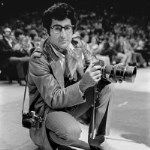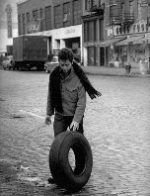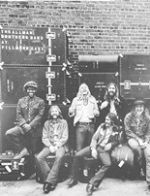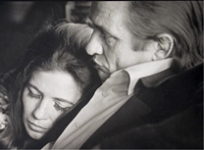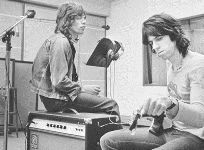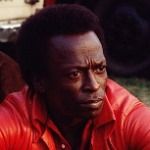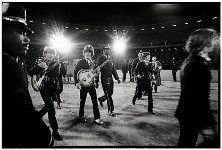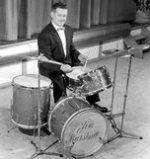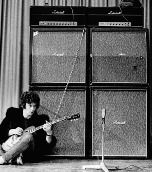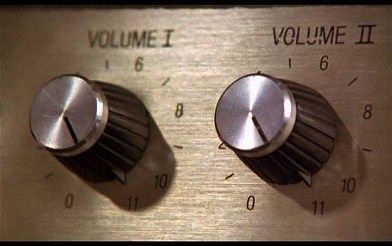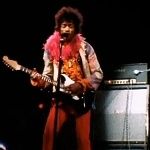President Obama spoke yesterday in Birmingham Alabama at Lawson State Community College. He mentioned that Congress passed a bill (insert shock emoticon here) but that they also released their budget. That budget gifts the richest Americans at the expense of middle and low income workers.
He expressed his hope that Congress would support his initiatives and he left his audience with this:
3:27 P.M. CDT
THE PRESIDENT: Hello, Alabama! (Applause.) Hello, Lawson State Community College! (Applause.) Well, it’s good to be here. Thank you so much.
AUDIENCE MEMBER: We love you!
THE PRESIDENT: I love you back! I do! Thank you. (Applause.) Everybody, have a seat. Have a seat. I’m going to talk for a second. Everybody please give Ollie a big round of applause, please. (Applause.) I felt a little bad because Ollie said “a man who needs no introduction,” so I started walking out. (Laughter.) Then it turned out she had a little introduction. (Laughter.) But it is wonderful to be here.
Let me just say, first of all, thank you to Dr. Ward — (applause) — who is not only your president; we named him a White House “Champion of Change” for the very work he’s done here at Lawson State. (Applause.) We’ve got two outstanding public servants here as well — Congresswoman Terri Sewell is here. (Applause.) Where’s Terri? I don’t even see her.
AUDIENCE MEMBER: Over here!
THE PRESIDENT: There she is — she’s way over there. And your Mayor, William Bell, is in the house. (Applause.)
So I’m here, Birmingham, to just acknowledge that I didn’t have UAB making it out of the first round. (Laughter.)
AUDIENCE: Ooooh —
THE PRESIDENT: My bracket is so busted. (Laughter.) But, UAB, that’s a great accomplishment. I want to congratulate them. (Applause.) It’s also great to be with students like those here at Lawson State, at community colleges. (Applause.) I’m proud of all of you. I’m proud of you making this investment in yourselves. What you’re doing takes effort and persistence. And it takes faith in the idea that no matter how you started, no matter where you come from, no matter what zip code you were born in, in America if you work hard you can get ahead. (Applause.)
I think it was yesterday I saw a story where someone said that a visit from the President is a “potential game-changer” for the neighborhood. I don’t know if just one visit is a game-changer, but it’s nice to be with you. The real game-changers for any neighborhood, for any community, are the people there, the folks who, day in, day out, are doing the work, and raising families and participating in the community, and through their churches and faith institutions are trying to provide that optimism and that lift.
And the young people who are here, you’re the game-changers — (applause) — because what you’re studying and your ability to then apply that learning, that’s going to make a difference. The love we put into our families and our communities every day, and embracing the joys of citizenship and participation — that’s what is a game-changer. That’s what makes a difference.
Now, I won’t deny I can help a little bit. (Applause.) I can maybe make a little bit of difference. And today, I want to talk about what we can do as a country to reward hard work, and keep the economy growing, and make sure that new jobs and opportunities exist.
The good news is, right now, we’re on a 60-month streak of private sector job creation — (applause.) Sixty months, that’s five years, that’s a long time. We’ve created 12 million new jobs. Nationwide, the unemployment rate has fallen — when I came into office, that first year it was 10 percent; now it’s 5.5 percent. (Applause.) There are more job openings than at any time since 2001.
Meanwhile, our high school graduation rate is up, at an all-time high. (Applause.) More than 16 million Americans have gained the security of health insurance. (Applause.) We’re producing more energy than ever before — oil and gas, but also wind power and solar power. Meanwhile, lower gas prices should save the typical family this year about $700 at the pump. (Applause.) And the good news is wages are even on the rise again, and that’s going to help a lot of families. (Applause.)
So it’s been a long, hard road. But thanks to the hard work of the American people, America is coming back. So the question now is, where do we go from here? Do we accept an economy where just a few people do really, really well? Or are we going to keep building an economy that generates opportunity for everybody who’s willing to work? (Applause.)
And what I believe is, is that America does best when the middle class does better, and when ordinary folks who maybe were born into poverty are able to climb their way into the middle class, that’s good for everybody. The economy grows best not from the top down, but from the bottom up and from the middle out. (Applause.)
So what we’ve been pushing is what I call middle-class economics — the idea that the country does best when everybody has got a fair shot, everybody is doing their fair share, everybody is playing by the same rules. And we want not only everybody to share in America’s success but contribute to it, because we know that if you field the team and only half the folks get to play, that team will be less successful. If everybody is playing a part, that team is going to be more successful.
So what does middle-class economics mean in this new economy? It means that every American has to have the tools to get ahead in a fast-paced, constantly changing global economy. That means that we’ve got to make sure that working families feel more secure, that their paychecks can go a little farther, that they’re getting things like paid leave and child care not as luxuries but because they help support families, that we treat those things as priorities for working moms and working dads.
It’s time to follow the example of states and cities and companies that are raising America’s minimum wage. That will make a difference. (Applause.) It means preparing Americans to earn good jobs and higher wages, which means every child getting a great education at the earliest age. (Applause.) Making college more affordable so young people can afford to go to college without getting burdened with debt. (Applause.)
It means working with businesses to provide apprenticeships and on-the-job training and other paths into the middle class. And I want to bring down the cost of community college to zero. (Applause.) Two years of community college should be as free and universal as high school is today. If we’ve got the best-trained workforce in the world, then businesses will come to Alabama. They’ll come to Birmingham. They’ll come to America. And we will succeed. (Applause.)
Middle-class economics means building the most competitive economy anywhere, so we can keep churning out high-wage jobs for the workers to fill. I want to put more people back to work rebuilding our roads and our bridges, modern ports — (applause) — faster trains, faster Internet. We should invest in those things. They pay off many times over.
I want to invest in basic research so that jobs and industries of the future take root here because we’ve invented new products and new services, and innovated. And we can pay for these investments without blowing up our deficits. We just need to reform our tax code so it helps middle-class families get ahead instead of letting folks who already got a lot get ahead. (Applause.)
And I have to say, these ideas are not about ideology. The reason I’ve proposed these ideas is because we know they work.
Now, let me talk about Washington for a second. (Laughter.) Let me just talk about Washington for a second. The good news is that today the House of Representatives passed a bill. (Laughter.) No, no. You think I’m joking. I’m not. (Laughter.) It was a bipartisan bill designed to make sure that doctors in our Medicare system get paid on time; that the Children’s Health Insurance Program continues to work.
I called the Speaker, John Boehner, and the Democratic Leader, Nancy Pelosi, and I said, congratulations, this is how Congress is supposed to work. They came together; they compromised. (Applause.) They had a good idea. They didn’t get everything they wanted. They passed a bill. Now the Senate hopefully will pass the bill, and I’ll get to sign it, and the American people will be better off for it. And I thought, this is great. Let’s do more of this. (Applause.) Let’s make it happen.
So I want to give John Boehner and Nancy Pelosi credit. They did good work today. And they deserve credit, and the House of Representatives deserves credit for that. (Applause.)
So that was the good news. (Laughter.) The bad news is the Republicans in Congress unveiled their budget, and it represents the opposite of middle-class economics, because it would hand out new tax cuts for millionaires and billionaires, let taxes go up for students and working families because it would eliminate their tax credits on a variety of things. It would cut investments in education to the lowest level since the year 2000.
It would double the number of Americans without health insurance.
And so you look at it and you say, what are you trying to solve with this budget? They say the reason they wanted this budget is because we’ve got to do this to eliminate deficits and debt.
Now, keep in mind, the deficit has come down by two-thirds since I’ve been President. (Applause.) It’s come down by two-thirds. And the budget I put forward would continue to keep deficits low.
But let’s take them at their word. They said they wanted to reduce the deficit. Before the ink was even dry on the budget that they put forward that was already full of tax cuts for folks at the top, they rolled out their next big economic plan, which was another huge tax cut for folks at the top. This one would cost $250 billion. It would apply only to the top one-tenth of 1 percent of Americans.
In Alabama, this new tax cut they’re proposing — I’ve got to laugh because it would average $2 million per person in tax cuts, and it would apply to less than 50 people per year here in Alabama.
AUDIENCE: Oooooh —
THE PRESIDENT: So 50 people would get an average tax break of $2 million. Not 50,000 people — 50.
AUDIENCE MEMBER: “Fiddy.”
THE PRESIDENT: “Fiddy.” (Laughter and applause.)
Now, what would lead you — when you’re saying you’re concerned about the deficit, what would lead you to put in your budget and then propose right after your budget something like that? I mean, did they look at the budget — they already got tax cuts for the wealthy, for millionaires and billionaires, and then they say, you know what we forgot to put in here? Another deficit-busting tax cut for the top one-tenth of 1 percent of Americans. That’s what’s really going to move the country forward. Is that what they were thinking? I guess. (Laughter.)
I don’t think our top economic priority should be helping a tiny number of Americans who are already doing really, really well, and then asking everybody else to foot the bill. (Applause.) And keep in mind, one of the things about being President, you meet people from all walks of life. You meet folks with very modest incomes. You meet the wealthiest people in the world. And let me just say, some of these folks at the very top, the top one-tenth of 1 percent, are wonderful people. Warren Buffet is a great friend of mine. They’ve done amazing things. They’ve invested. They’ve created businesses. They deserve great success. But they really don’t need a tax cut. (Laughter.)
And if you talk to them, they’ll tell you, “I already got a couple planes, I already got a boat — (laughter) — I already got five or six houses — I’m okay.” (Laughter.) And the idea that you would do it at the same time as you’re eliminating tax credits for students or working families — that doesn’t make sense.
Our top priority should be helping everybody who works hard get ahead. (Applause.) It doesn’t mean everybody is going to be equal. It doesn’t mean that we’re going to punish people who started businesses and taking risks. They should be rewarded. But we want to make sure everybody has a chance to do okay if they’re working hard.
And that brings me to one of the main reasons that I’m here in Birmingham today. One of the main ways to make sure paychecks to go farther is to make sure working families don’t get ripped off. (Applause.) Right? And that’s why we’ve taken action to protect Americans from financial advisors who don’t necessarily have the interests of their clients at heart. That’s why we’ve taken steps to protect student borrowers from unaffordable debt. We want them to know before they owe.
It’s why, five years ago, we passed historic Wall Street reform to end this era of “too big to fail,” where banks on Wall Street, some of them would make reckless bets, and then everybody else would have to clean up after them. And why we’ve been working to protect people so that they understand mortgages, and they don’t buy homes they can’t afford and end up in a situation not only hurting themselves, but hurting the financial system.
And that’s why, as part of this reform, we created an independent consumer watchdog with just one mission, and that is to look out for all of you. And it’s called the Consumer Financial Protection Bureau — or CFPB. (Applause.) Now, these folks — the CFPB, it hasn’t been around a long time, but because of the work they’ve done — it’s not a big agency, but they’ve already put over $5 billion back into the pockets of more than 15 million families. (Applause.) Because they’ve taken on unfair lending practices and unscrupulous mortgage brokers. And they’ve gotten refunds for folks, and are working with state and local officials to make sure that people are protected when it comes to their finances. Because if you work hard, you shouldn’t be taken advantage of. (Applause.)
And today, they’re taking new steps towards cracking down on some of the most abusive practices involving payday loans and title loans. (Applause.)
Now, Ollie was talking about this in a very personal way. I want to just break this down for folks. Every year, millions of Americans take out these payday loans — here in Alabama, there are four times as many payday lending stores as there are McDonald’s. Think about that. Because there are a lot of McDonald’s. (Laughter.) There are four times as many payday loan operations here in Alabama as there are McDonald’s.
Now, what they’ll say, the folks who run these things — in theory, what they’ll say is these loans help you deal with a one-time expense. So your car breaks down, you got to get to work; you go there, cash a check real quick, or get a quick loan, and then that’s the end of it. In reality, most payday loans aren’t taken out for one-time expenses. They’re taken out to pay for previous loans. You borrow money to pay for the money you already borrowed.
As Ollie will tell you, before you know it, you find yourselves trapped in a cycle of debt. At first it seems like easy money. But the average borrower ends up spending about 200 days out of the year in debt. You take out a $500 loan at the rates that they’re charging in these payday loans — some cases 450 percent interest — you wind up paying more than $1,000 in interest and fees on the $500 that you borrowed.
We were hearing a story from some of the advocates who were working here in Alabama, a story about a family — the grandmother died, matriarch of the family. She passed away. They don’t have quite enough to pay for the funeral. They go to a payday loan, borrow for the funeral; can’t pay back the loan in time; the family’s car gets taken away. And the two folks who are the breadwinners in that family lose their jobs because they can’t get to work. Right? So what started off as a short-term emergency suddenly becomes a catastrophic financial situation for that family.
And you don’t need to be a math genius to know that it’s a pretty bad deal if you’re borrowing $500 and you have to pay back $1,000 in interest.
So I just met with faith leaders and consumer advocates and civil rights leaders here in Alabama who are coming together to change that. And I want to say that this is a bipartisan effort. You’ve got some very conservative folks here in Alabama who recognize — they’re reading their Bible, they’re saying, well, that ain’t right. (Laughter and applause.) Right? I mean, they’re saying the Bible is not wild about somebody charging $1,000 worth of interest on a $500 loan. Because it feels like you’re taking advantage of somebody. If you’re lending to somebody, knowing they can’t pay you back, and you’re going to put them on the hook and just squeeze them harder and harder and harder and take more and more money out of them, you’re taking advantage of them.
And so I’m very proud of the bipartisan effort here in Alabama to try to change this. But I want everybody to know they’re not going to have to fight alone. Because at the federal level, the Consumer Finance Protection Bureau, the CFPB, announced today that it’s going to take important steps towards protecting consumers from getting stuck into these cycles of debt. (Applause.)
And the idea is pretty common sense: If you lend out money, you have to first make sure that the borrower can afford to pay it back. Don’t lend somebody money if you know they can’t pay it back.
As Americans, we don’t mind seeing folks make a profit. And if somebody lends you money, then we expect you to charge interest on that loan. But if you’re making that profit by trapping hardworking Americans into a vicious cycle of debt, you got to find a new business model. You got to find a new way of doing business. (Applause.)
So this is just one more way that America’s new consumer watchdog is making sure more of your paycheck stays in your pocket. And in the meantime, we’re also going to be working to educate folks on how to think about their money.
We were talking to Dr. Ward, and through the community college process, through consumer advocates at the local level, in the high schools, we need to be teaching young people the dangers of taking out too much consumer debt. (Applause.)
And this is one more way that Wall Street reform — what we passed five years ago — is protecting working families and taxpayers. And that strengthens the economy.
And that’s one more reason why it makes no sense that the Republican budget would make it harder for the CFPB to do its job, and would allow Wall Street to go back to the kind of recklessness that led to the crisis in the first place, and would allow these kinds of lenders who are not doing the right thing to keep at it.
I have to be clear: If Republicans in Congress send me a bill that unravels the reforms we’ve put in place, if they send me a bill that unravels Wall Street reform, I will veto it. (Applause.)
And this is not about politics. It’s about basic values of honesty and fair play. It’s about the basic bargain that says, here in America, hard work should pay off, responsibility should be rewarded.
One of the people who I met with was Reverend Shannon Webster of Birmingham’s First Presbyterian Church. Where’s the pastor? He’s here somewhere. There he is, in the back. Stand up so everybody can see you. (Applause.) So Pastor Webster is one of the pastors leading the effort to protect consumers here in Alabama. And at a public hearing a few years ago, he explained why he decided to work on this issue: “When our people are trapped in debt,” he said, “they cannot escape, and we’re all hurt.” We’re all hurt. And that’s a simple statement, but it captures so much of what it means to be an American.
We are a nation of rugged individuals. We don’t expect folks to give us a handout. We expect people to work hard. We expect that hard work to be rewarded. If you’re out there and you’re working hard and starting a business, and doing the right thing and looking after your family, and not spending beyond yours means, folks like that shouldn’t be punished or expected to pay for everybody else. We expect everybody to be responsible.
But we’re also our brother’s keeper. We’re also our sister’s keeper. (Applause.) We’re also a country that was built on the idea that everybody gets a fair shot and that we put laws in place to make sure that folks aren’t taken advantage of. When this country does not live up to its promise of fairness and opportunity for all people, we’re all hurt. (Applause.) When we do live up to those promises, all of us are better off.
Back in 2008, I came to Birmingham as a candidate for this office, and I said, “There is nothing we cannot do if the American people decide it’s time.” Seven years later, I still believe there is nothing we cannot do if we decide it is time. (Applause.) We’re all in this thing together, Alabama. We’ve been through some tough times together, but we’re coming back together. If we decide this is our time, then together we’re going to write the next great chapter in this country’s history. We’re going to do it not just because I came to town, but because of the wonderful people in this town who are already making it happen.
Thank you, Alabama. (Applause.) God bless you. God bless the United States of America.
END 3:44 P.M. EDT

